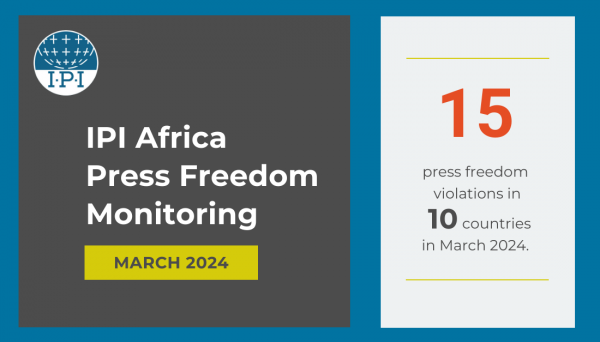The European Union must take action to stop the accelerating elimination of press freedom in Hungary, the International Press Institute (IPI) said today after a government regulator rejected the license renewal of Hungary’s last independent radio broadcaster.
Hungary’s Media Council, which is controlled by Viktor Orbán’s FIDESZ party, rejected the renewal application of Klubrádió, meaning that the Budapest-based commercial talk and news radio station’s license will expire on February 14, 2021, potentially forcing it off the airwaves for good.
Justifying its ruling, the Media Council said that during the last seven years Klubradio had repeatedly violated Hungary’s Media Law. András Arató, chairman of the Board of Directors of Klubrádió, previously denied the station had committed violations that could result in its license extension rejected.
Klubrádió’s critical coverage has long made it a target of the Orbán government. The station has been progressively stripped of its frequencies outside the capital, confining it to Budapest. Moreover, when its previous license expired in February 2011, the Media Council refused to extend the license for two years despite three court rulings in the station’s favour. A grass-roots campaign by thousands of listeners added to growing pressure and Klubrádió was awarded a long-term frequency in March 2013.
The station’s future is now in serious jeopardy. The Media Council has announced it will re-open the tender for its current frequency, Budapest FM 92.9 MHz, which Klubrádió would have to win to get back on the air. If it is not successful, and cannot attain an analogue frequency again by February 2021, it could be forced to exist exclusively on the internet.
“The Media Council’s decision rejecting Klubrádió’s renewal shows that Viktor Orbán is on a path to eradicate what remains of Hungary’s independent press”, IPI Deputy Director Scott Griffen said. “The European Union claims that press freedom and fair market competition are among its core values, yet it has so far failed to defend these values in Hungary.”
“While Brussels dithers, Orbán is not only silencing the last sources of independent news in Hungary, but he is also extending his illiberal media model to other countries in the region. If the EU is unable to stop the dismantling of fundamental rights in Hungary, the problem will spread. The EU cannot look away anymore: to allow the eradication of press freedom and media pluralism in Hungary is to allow it anywhere.”
In a statement, Klubrádió said: “In its decision published today, the Media Council justifies its decision by several violations of the Media Act. This statement, in the opinion of Club Radio, does not correspond to reality. The leaders and employees of Klubrádió are looking for legal and other means in order to ensure that Hungary’s last independent radio, which authentically informs hundreds of thousands of people every day, is not muted.”
The Hungarian broadcast sector is dominated by pro-government media. The only remaining independent television station is the foreign-owned commercial broadcaster RTL Klub, whose evening news programme carries stories critical of the government. Klubrádió is the last bulwark in the radio sector, with the radio waves outside Budapest already carrying only pro-government news.
HU media authority rejects renewal permit of indepependent #Klubradio. After killing of #Index, gov’t completes occupation of HU media. RTLKlub stands as last independent offline media.@EU_Commission @vestager time to act, and investigate our complaints?https://t.co/St0LqH8Wfp
— Benedek Jávor (@javorbenedek) September 11, 2020
Today’s decision also comes just weeks after mass resignations at Index.hu, heralding the collapse of its position as the leader in independent online news in Hungary.
The Media Council is stacked with FIDESZ loyalists. Over the last several years the body has contributed to the dramatic decline in the diversity of Hungary’s media by selectively interpreting the law to allow FIDESZ and the KESMA foundation to slowly take greater control over the country’s media market.
Its latest efforts to silence Klubrádió reflect the government’s strategy of abusing control of state institutions and state resources to bias the media market against independent outlets or force them out completely. This strategy also includes the weaponization of state advertising spending, which is massively tilted toward pro-government media and which is the subject of a formal state aid complaint to which the European Commission has yet to respond.
The country’s media authorities were also mobilized to block mergers among independent media while allowing fusions of pro-government outlets, further distorting fair competition conditions. Nevertheless, the 2018 creation of the KESMA pro-government media foundation, which includes over 470 outlets previously owned by Orbán-aligned oligarchs, so obviously ran roughshod over competition rules that even the Media Council was prevented from analyzing its legality.
This statement by IPI is part of the Media Freedom Rapid Response (MFRR), a Europe-wide mechanism which tracks, monitors and responds to violations of press and media freedom in EU Member States and Candidate Countries.




